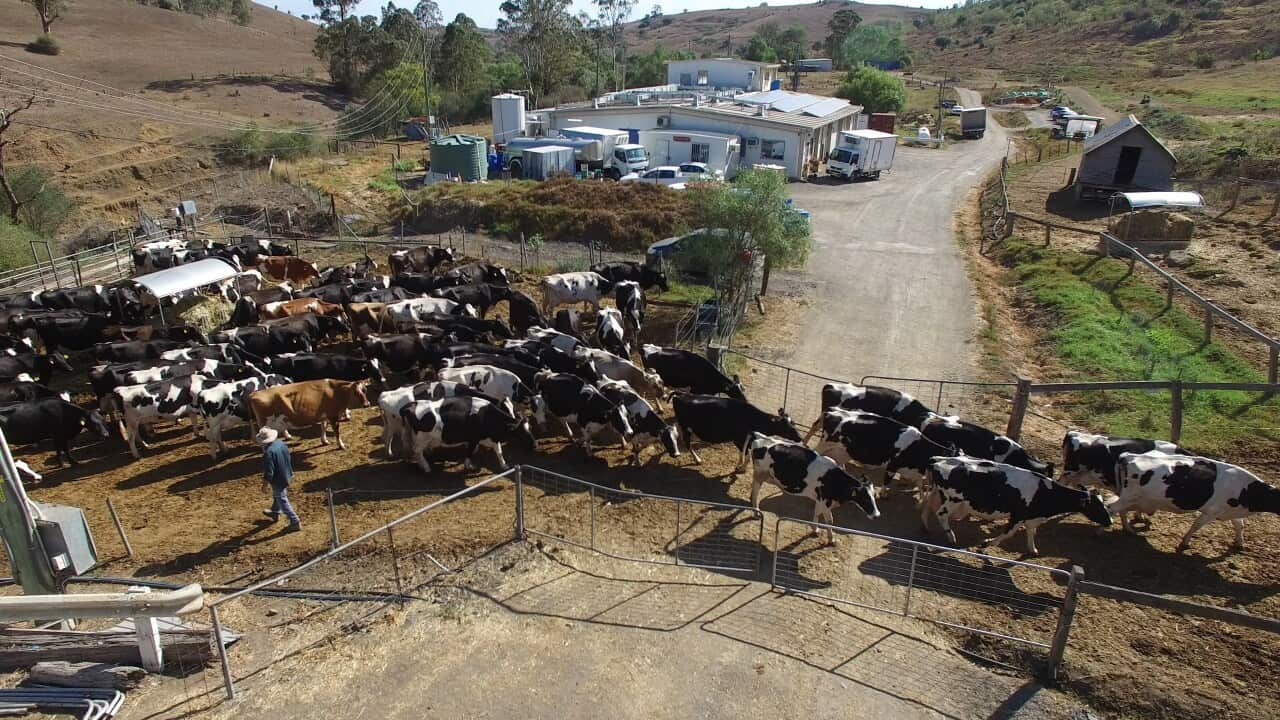The Fairley family has been farming for more than 150 years – trying their hand at everything from beef cattle, vegetables to even timber.
But it’s in dairy that the family has found their calling – and these days, the family farm is a boutique dairy farm, supplying milk under the Country Valley label to supermarkets and small businesses.
Dairy is a $13 billion dollar industry in Australia, directly employing about 40,000 people nationally.
John Fairley’s farm makes its own contribution to the industry – processing 4 million litres of milk each year, with almost 1 million litres coming from his herd at the Picton farm.
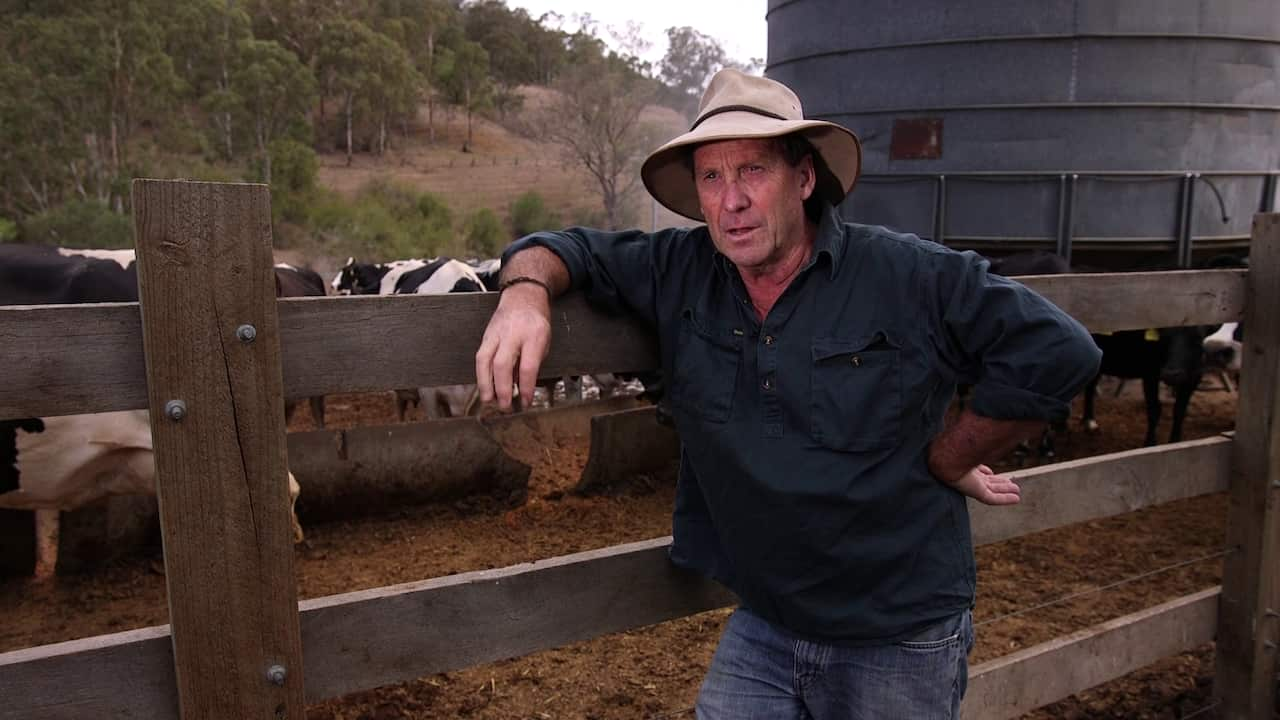
“The difference with our brand is we don’t sell a bottle of milk, we sell a story – the fact that we’re seven generations, family-owned, the fact we come from the Sydney basin,” Mr Fairley said.
The family history of the Fairley farm is not the only thing that differentiates them from other dairy producers – most dairy farmers sell their milk to processors for bottling, or turning it into other dairy products like cheese, before selling to retail or export markets.
But, Mr Fairley’s farm has an onsite bottling plant, processing the milk from his own farm and others nearby.
Even though the family business has taken ownership of its own supply chain, some of the challenges they have had to face as dairy farmers have been very much outside of their control.
“The creek’s dried out, the dams dried up – we’ve been trucking water in for our cows,” farmer Tom Fairley said.
Despite the drought conditions experienced by some regions, a new analysis from market researchers IBISWorld indicates the dairy farming industry is likely to be among the top-growing sectors in Australia this financial year, citing an increase in the national dairy cattle herd, and a recovery in dairy commodity prices.
The research from IBISWorld suggests conditions are improving for dairy farmers across the country, particularly in Victoria, where 70 percent of the nation’s dairy farms are based.
But, it’s not just the natural elements that many dairy farmers, including the Fairley family, are battling against – the ongoing $1 milk saga has taken a massive toll on many farmers, as has the rising popularity of soy and nut milks.
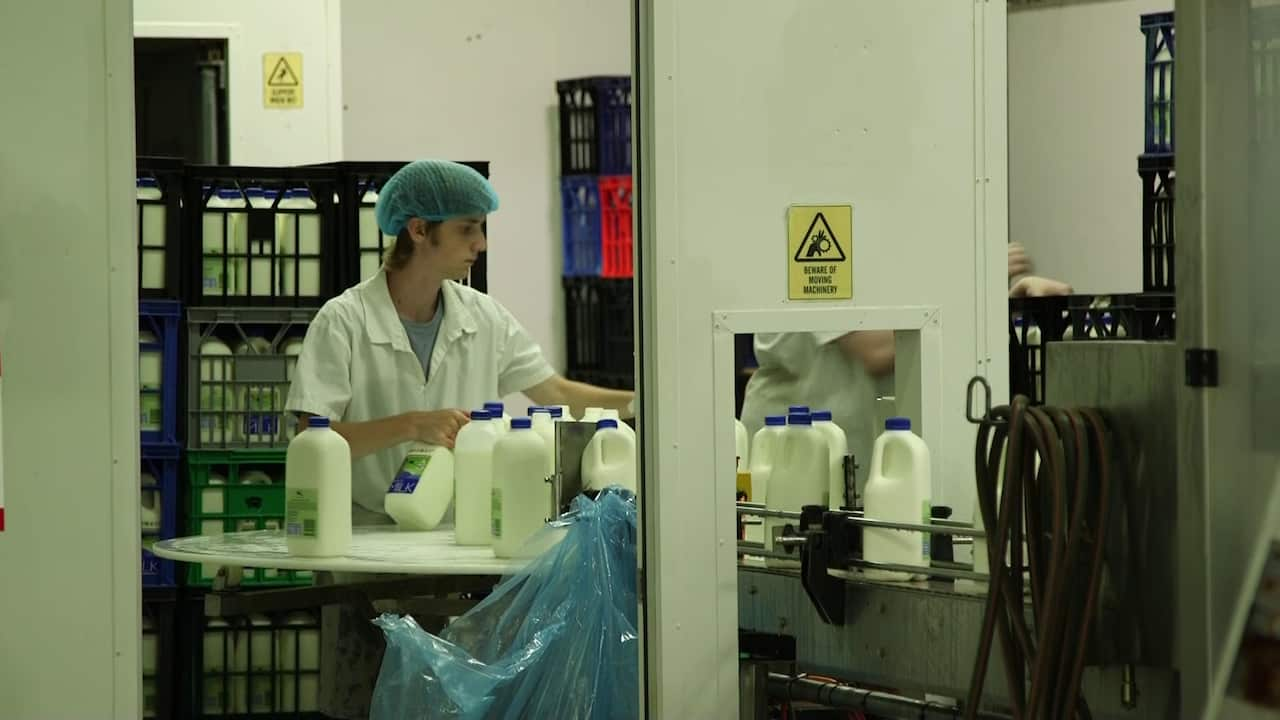
Mr Fairley says being a boutique farm has its benefits, including having more control over products and sales.
Country Valley milk has won numerous awards at the Sydney Royal Cheese and Dairy Show, due to the way it's processed - it gives the milk a naturally sweeter taste.
The Fairley’s hope they can pass on the sweet taste of success to other boutique business owners, like cheesemaker Kristen Allan, who uses Country Valley milk to produce her artisan cheeses.
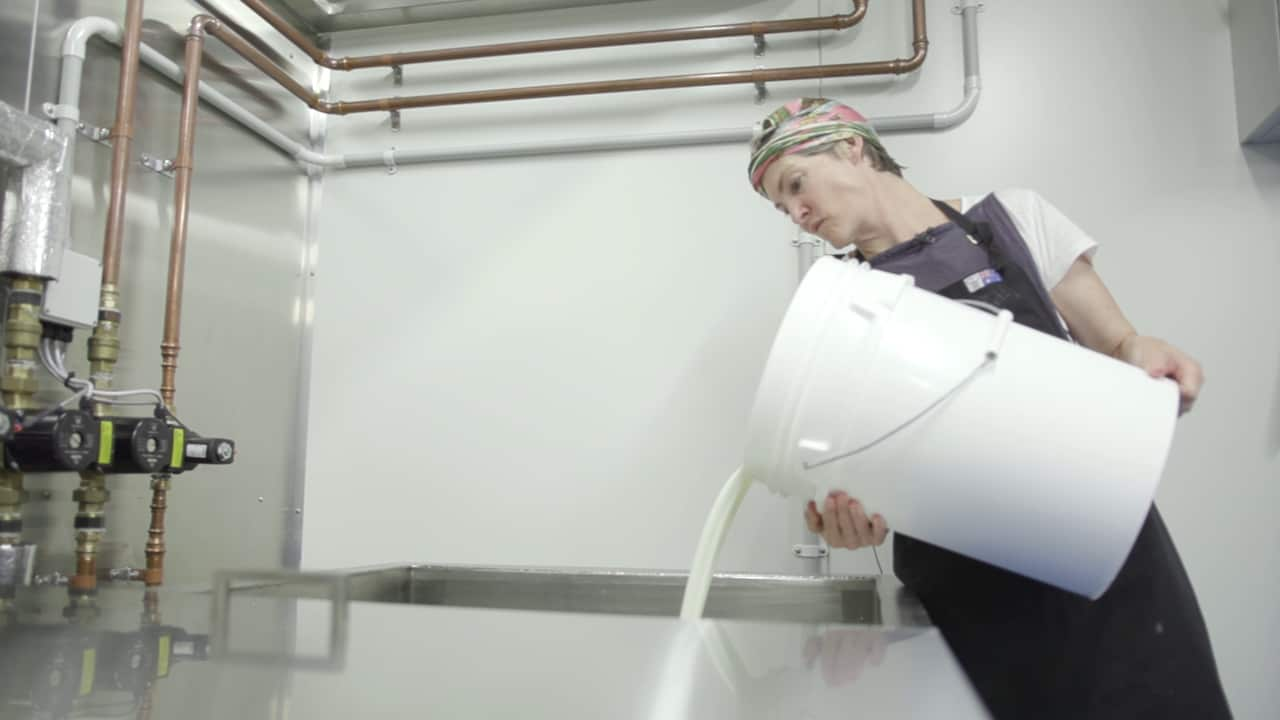
“If you have a glass of John’s milk, it has a really amazing mouthfeel, you can feel the cream in the milk,” Ms Allen said.
“It brings a freshness and creaminess to the cheese. It’s all about the milk.”
Ms Allen learned cheese-making in South Australia and Spain, and while it’s her full-time business now, it started as just a hobby and a lifelong love of dairy.
“I was working in the corporate world, and I wasn’t really happy with what I was doing,” she said.
“When I was a kid, mum used to always find me with a chunk of cheese, and she used to call me a mouse. I would just sit there nibbling a piece of cheese.”
Ms Allan believes there’s been a change in consumer demands, and that’s having a positive impact on boutique dairy producers.
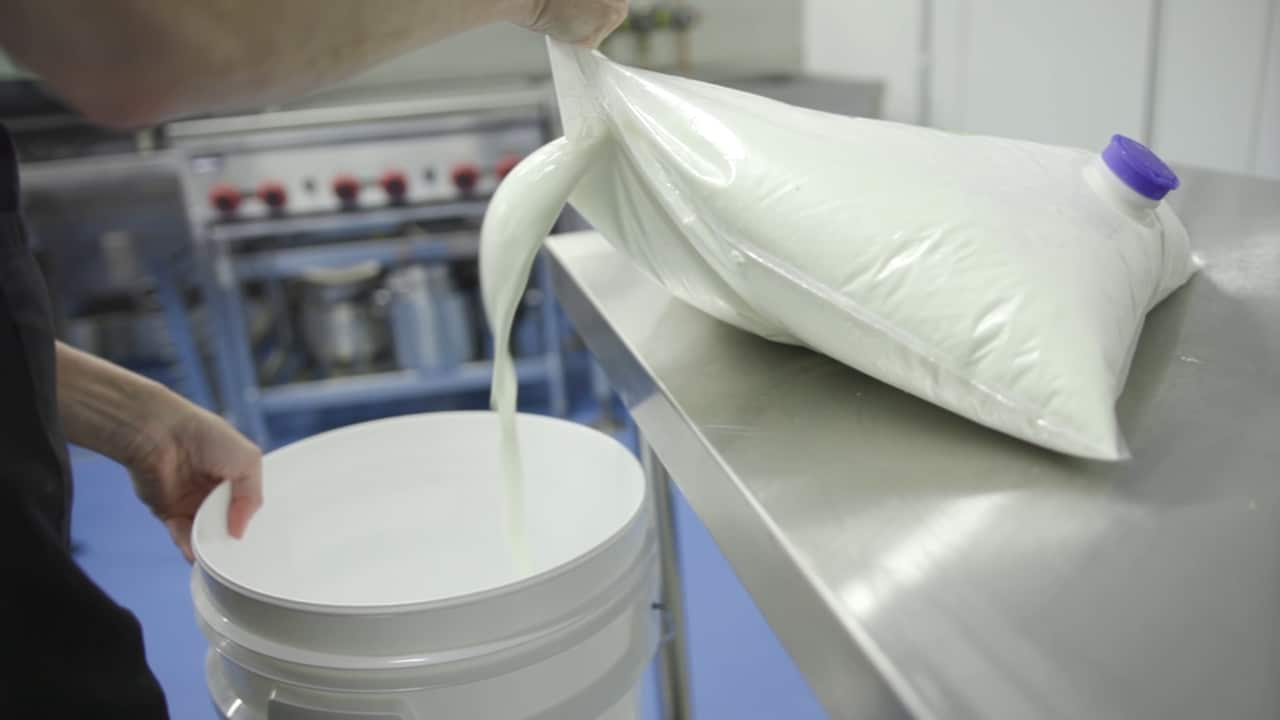
“I think a lot more people are concerned about where their food comes from and how it’s made,” Ms Allan said.
Mr Fairley’s philosophy of keeping his business boutique and local is something that resonates with Ms Allan, who says as she grows her company with her business partner Matthew Tickle, they will never forget their passion.
“Matt and I are constantly reminding ourselves that we love what we do, and have a great product,” Ms Allan said.
“We don’t have grand plans to pump out lots of cheese; our goal is to keep it quite small and handmade.”
Watch this story at the top of the page, or catch the full episode on SBS On Demand.
Sharing business secrets of inspiring entrepreneurs & tips on starting up in Australia's diverse small business sector. Read more about Small Business Secrets
Have a story or comment? Contact Us

